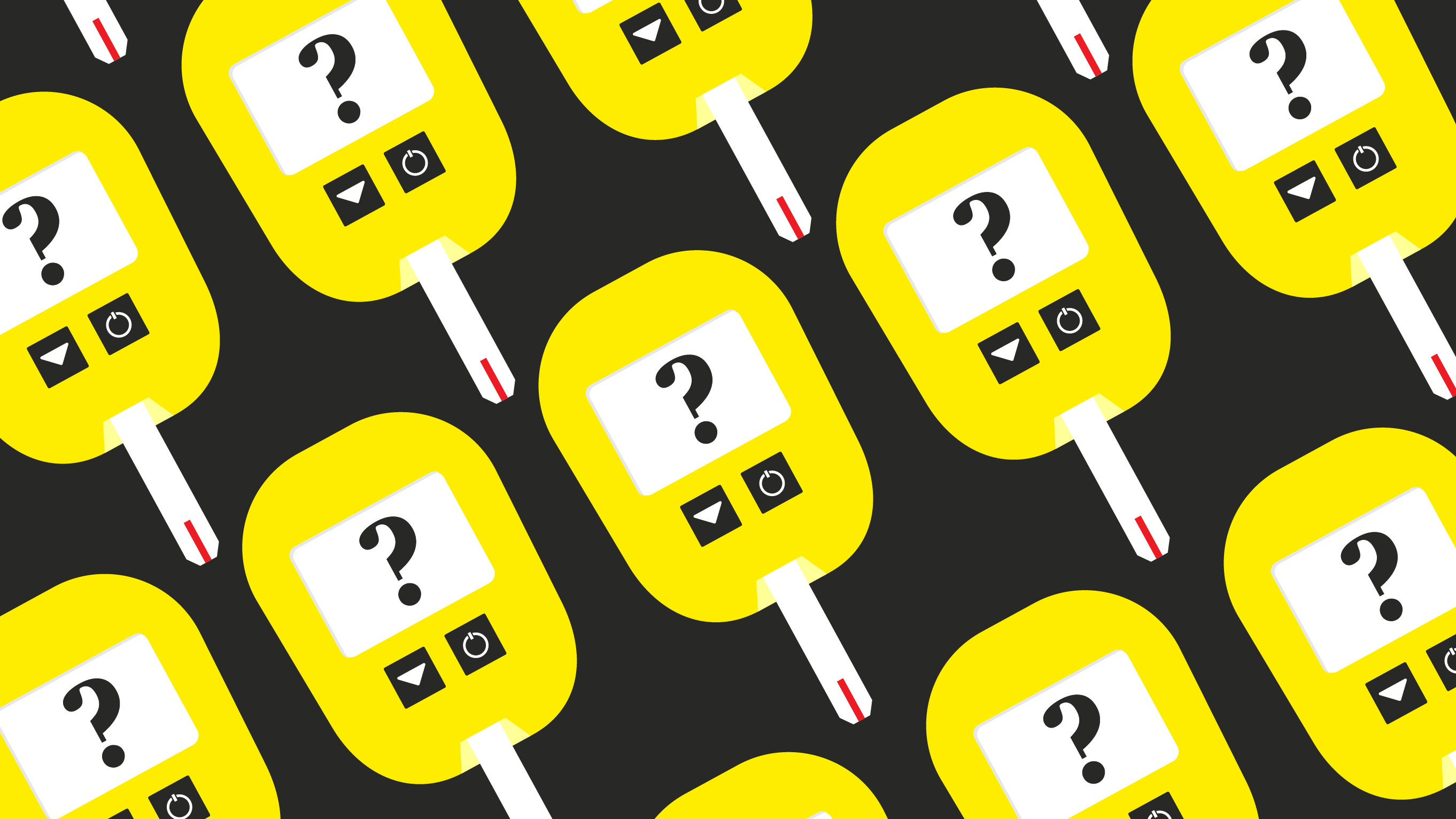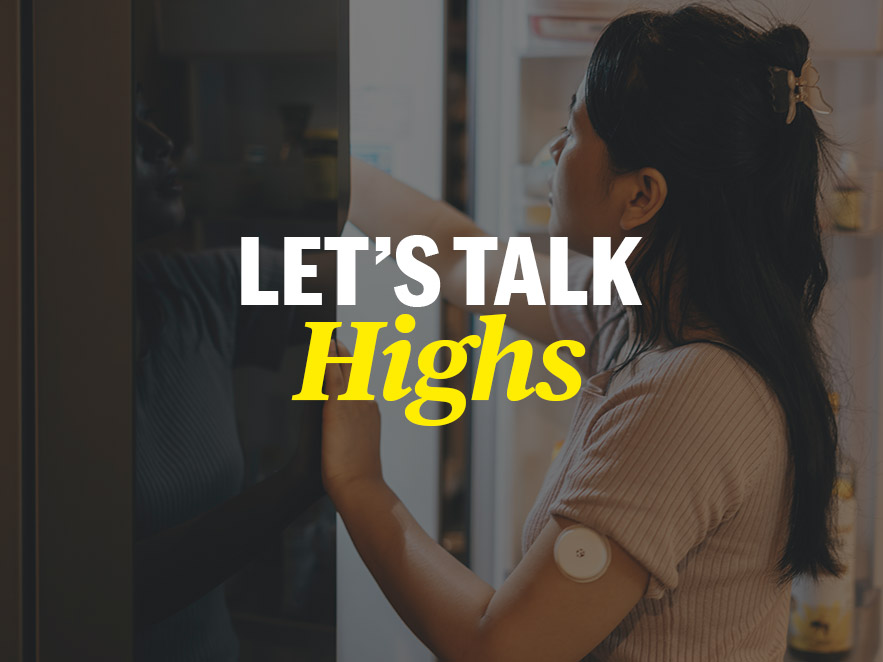Community Table: Nutrition, Health + Wellness in the Black Diabetes Community
Written by: Beyond Type 1 Editorial Team
6 minute read
April 22, 2021
Community Table is presented by the JDRF-Beyond Type 1 Alliance and made possible with support from Abbott Diabetes Care, Dexcom, Lilly, MannKind, Medtronic, Omnipod, Roche Diabetes Care and Tandem, active partners of Beyond Type 1 at the time of publication.
During our second Community Table discussion, Beyond Type 1 sat down with a group of experts and community members to discuss nutrition, health and wellness in the Black diabetes community, and share helpful resources and perspectives. Watch the discussion in full!
[bt1-youtube id=”XmB-mhwJeYY” type=”inline” image=””]
Speakers included:
- T’ara Smith, who served as the moderator for this event, was originally diagnosed with type 2 diabetes in 2017 but was re-diagnosed with latent autoimmune diabetes in adults (LADA) diabetes in 2019 and is senior manager of Beyond Type 2.
- Keith Crear, who has lived with type 2 diabetes since 2017, is a sports photographer and multimedia specialist.
- Alexis Newman, who has had type 1 diabetes for 37 years and is a registered dietician.
- Dex Geralds, who has had type 2 diabetes since 2016 and works as a personal trainer and CrossFit coach.
- Joy Ashby Cornthwaite, a dietitian and a certified diabetes care and education specialist.
Partial transcript of conversation below, edited for content + clarity.
What does wellness mean or look like for you, and has your diagnosis changed the way that you live?
Dex: It’s balance. I know a lot of times when I’m with people who don’t typically know about diabetes, there’s a lot of things surrounding food that they believe I cannot have at all. Once you find the balance, you’re able to still eat some of the things that you’re eating before your diagnosis, maybe not at the same amount that you were eating before. Just finding balance with the way you eat, balance in the way you exercise. Whether it’s like myself who exercise maybe two hours a day or just going out for a 15-minute brisk walk. Just finding balance in what comes with that. The last thing in balance is just your mental health and making sure you check in with yourself and your feelings and your emotions and figure out what brings you happiness and joy.
Keith: It is a balance. It’s knowing what to eat, what not to eat, what to consume, when to consume it. Exercise is very, very important.
Alexis: For me, what it looks like is making sure that I am well, not only with how I’m eating, but also exercise. Making sure I’m honest and checking in with my friends and family, my support system, too. Also, the spiritual aspect of it. I’m a Christian, so making sure I’m connected in the sources that I feel encouraged in. When one of those are kind of out of whack, I don’t feel well.
Joy: I think of health on a continuum, and I encourage that in every day. In my family life, in my personal life, but also for those who I help to balance their journey with diabetes because everyone has their own journey and their whole complete individual. When someone comes to a session with me, I find out where on the continuum you are and what can we work on today? It has to come from you. It has to be what you want and not necessarily what I want. But I’m going to use my skills to get you to where you need to be.
What misconceptions have you encountered pertaining specifically to Black people with diabetes when it comes to fitness? What is some of the ways that you’ve helped your Black clients move past those stigmas and misconceptions?
Dex: The biggest thing is support in our community and in the world in general. If you’re overweight you get looked down upon and that can add to depression and lead to worse things. I know a big term going on right now is “unlearning” and taking everything, looking at it through a different scope, and then figuring out what brought you to this point and then what can I do to change this. It’s not just a one-stop shop kind of thing. It’s going to take a while for you to start to see changes for the most part. You have to create these better habits and getting through that way.
Learning to love yourself is vital, and when you learn to love yourself you want to do the things that’s right for you and you’re going to quiet that outside noise and put your blinders on and work for yourself and not think about the negative things that you might be getting from someone else. My family has a history of diabetes and obesity. My oldest sister, she’s lost 150 pounds now, but still just over 400 pounds. I remember things people would say to her growing up. Now that I support her and my family’s supporting her, she’s been on this incredible journey and losing weight because now she feels confident enough to do the things that once scared her or felt ashamed about. Being able to conversate and talk to my sister, or just clients in general, I’ve been able to learn what’s going on and been able to apply that to them in their journey in fitness.
Alexis: The kind of things that I’ve seen is that they believe that people think they’re lazy so they don’t want to push through that because they’re afraid of what people are going to think. I’ve also seen the fear of not knowing what to do overtake them in my discussions with my patients. Another idea is that they have this perceived idea of what exercise looks like, so really breaking it down into bite-sized pieces of like, “Look, as long as you’re like being consistent with the movement, whatever you choose to do, you can add on time, you can add on intensity. But, as long as you’re out there trying to move.” Those are the things that I have conversations with my patients about in terms of fitness.
Another thing too, is that an ideal weight of someone who’s African American may not be similar to another culture or race. We need to keep that in mind as we are discussing food, nutrition, health and weight that the ideal weight that a doctor may have for you may not be appropriate. I think that needs to be said and also needs to be addressed when we’re talking to these patients about weight and health and blood glucose numbers and things like that.
Joy: When it comes to fitness, one of the great disservices, especially for the Black community, is to tell people that they need to lose weight if they’re moving. For many people who are living with diabetes, movement doesn’t always equate to weight loss. It also doesn’t always equate to better blood glucose values.
There’s a lot of things that go into thinking about exercise. When you’re telling someone that it’s going to make them better to exercise and they’re saying that their blood glucose is either crashing or going up way too high with exercise there’s a disconnect. You haven’t heard what they’re saying to you. You need to find out what people are experiencing in their exercise journey and then address those things and say, “Look, you may not lose weight, but let’s check your blood glucose before and after.” Celebrate the win over either the hyperglycemia that you have been feeling or the hypoglycemia that you were feeling if you didn’t pre-exercise meal or whatever reason. Celebrate the win that is more than weight.
How can we celebrate our culture or different types of Black cultures throughout the year, not just during Black History Month?
Joy: Support each other. I know for years I felt like I was the sole person saying, “Black people aren’t making ourselves sick with diabetes.” We need help. We need medications. We need diabetes health care and management. We need to know how to take care of ourselves and we don’t have to do that alone. Whatever we need to do we need to support each other and do it together and then we’re louder.
Dex: Our culture is so vast and rich, and it needs to be shared every day in whatever way possible. Whether it’s through social media or just through conversation or the way you dress, the way you wear your hair. It just needs to be expressed and be out there for people to see and enjoy and learn. I love my culture so much.
Alexis: Buy Black. There are so many amazing Black companies, I’ve been focusing on and amplifying those businesses on social media and telling my friends. I’m in a friend group and we’re talking about face care. I’m like, “All right, I’m using this” and they’re using this Black company. We’re just sharing information of these amazing Black companies that are out there. If we can’t do that, then no one else is going to. It’s really important to invest in Black businesses because they’re everywhere.
T’ara: Yes, please support Black businesses that you see, especially in the diabetes community. There’s so many Black people in the diabetes community who have businesses and organizations who could use amplifying on your social platforms. That social sharing could do a whole lot because you never know who can see their products, so please amplify it.
Keith: Constant delivery of content from Black creators. Constantly delivering things from Black history that could be done every day. The way you wear your hair, the clothes. Just something that constantly keeps it in the public eye so it’s not condensed down to just one month. There are a lot of people out there that are doing it and it’s always great to see that. If more of us continue to do that it’ll shift the narrative and it will shift the visual aspect of how we’re seen in society as a whole.
Want more #CommunityTableTalk? Check out upcoming conversations and register to join one here.

Author
Beyond Type 1 Editorial Team
Beyond Type 1 is the largest diabetes org online, funding advocacy, education and cure research. Find industry news, inspirational stories and practical help. Join the 1M+ strong community and discover what it means to #LiveBeyond a diabetes diagnosis.
Related Resources

Hyperglycemia—or high blood sugar—can sneak up on you, whether it’s from a missed dose, a...
Read more

Curious about how to join a diabetes clinical trial? If so, good on ya’, because...
Read more

Diabetes clinical trials pave the way for how we manage and treat type 1 and...
Read more

